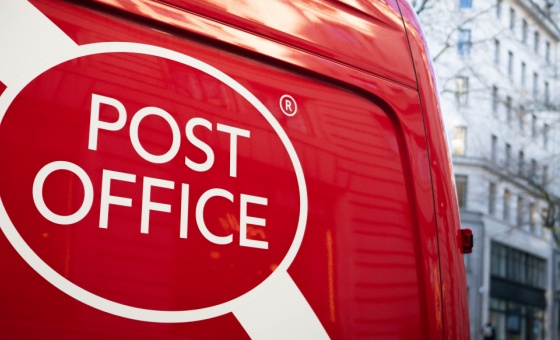This is the last article you can read this month
You can read more article this month
You can read more articles this month
Sorry your limit is up for this month
Reset on:
Please help support the Morning Star by subscribing here
ON Sunday September 16 I spoke at a celebration of 50 years since the Mangrove 9 achieved their victory against a police campaign comprising racism, brutality and planting of drugs.
In the early ’60s there were constant raids on local Caribbean restaurant the Mangrove Club in Notting Hill’s All Saints Road, and their mainly African-Caribbean customers.
It was a landmark victory as the defendants had represented themselves — a first in legal history. They were all vindicated.
But whenever something happens in our communities and people say “lessons must been learnt,” I have to look at our history.
Kensington and Chelsea, where I was born and bred, is a microcosm of everything that has gone wrong under the eight painful years of imposed austerity under the coalition and Tory government.
Housing, health and adult social care are in crisis. It is the most unequal borough in Britain, despite being, according to a Tory councillor, “the richest borough in the universe.”
I’ve been a local councillor for 12 years and began to write about this in 2013, after reading a shock report on life expectancy. Since then, things have got worse. As Kensington’s MP, I constantly remind people about this unforgivable daily injustice.
In what we sometimes jokily call “East Kensington” (Knightsbridge, specifically around Harrods) a white British man can live to 92 — a fantastic age if you have good health.
However a Moroccan man living on an estate in Golborne ward, North Kensington, can expect to live to just 63. The average across Golborne ward has decreased by six years to just 72 since 2010; according to Public Health England, this is unprecedented.
No-one can deny that this is due to poverty. Our fourth foodbank is about to open. A child has been born with rickets. Mental health is deteriorating among those struggling to survive day to day.
We know many of the reasons for this. Government cuts are partly to blame, but the decisions about funding priorities lie with the council. While other councils faced huge cuts in government grants, RBKC lost on average just £10 million a year since 2010. Meanwhile, they were cutting services and squirrelling cash away in reserves of an extraordinary £300m, including cash reserves.
I contributed to a report on RBKC procurement strategy. It was shocking. The council was haemorrhaging money in some areas, while “value engineering” in others.
It cut elders’ lunch clubs that cost a mere £6,000 a year, and sliced youth services funding while outsourcing.
Many outsourced services have ended in disaster, with older people ever more isolated, and young people complaining about the lack of youth services which they have told me they rely upon to keep themselves on track.
The black hulk of Grenfell Tower, just down the road from me, with 72 lives lost and thousands suffering PTSD, was the final chapter in that terrible story of “value engineering.”
Predictable — and predicted.
You may have heard that Kensington and Chelsea Council has learnt lessons since the Grenfell Tower atrocity last year. You may have heard that there has been a “culture change” at the council. Changes at “the top.” A new intake of councillors. They’ve sold the mayor’s £125,000 Bentley.
But I don’t see a genuine change in culture.
It is telling Grenfell survivors, bereaved and evacuees stuck in hotels and temporary accommodation (currently the “unspun” number is a shocking 171 households), that they must accept unsuitable permanent homes, as they can no longer afford to keep them there — if they don’t, they will be charged full rate for the temporary accommodation they are in.
And I’ve just heard a story of neglect and disdain about a nursery which had been located in Grenfell Tower, and still has no permanent home after 15 months. The council promised them a particular site, then “forgot” and leased it to someone else.
Meanwhile they have just spent £1.7m on a new terrace to house the supposedly independent Opera Holland Park, a terrace which outside opera season is to be locked up. This terrace measures 3,400 square feet of public parkland, of which the opera has exclusive use for 12 weeks a year. Free.
This opera was supposedly cut loose two years ago to make its own way, but still has the use of 2,000 square feet of council offices. Free.
The council subsidised opera, which over 19 years lost an average of £1m a year, while it cut desperately needed nurseries and youth clubs.
The community managed to stop the council leasing a beautiful Victorian library to a prep school, but is, without any consultation whatever, leasing a large community centre in our most deprived ward to a private alternative provision service (formerly pupil referral unit) — which ironically has been moved out of a beautiful Victorian school so it can be turned into luxury flats.
So where are the “lessons learnt” since 1967, or since that terrible fire on June 14 2017?
Just as the government has hardened its attitudes towards low-income families and people with disabilities or chronic illness, we see the council hardening its approach to those it let down so horrifically 15 months ago.
You can spin it however you like, but our communities see it clearly. Lessons have decidedly not been learnt. “They” — those in charge — still don’t care.
Emma Dent Coad is MP for Kensington and is a supporter of the Socialist Campaign Group of Labour MPs.











